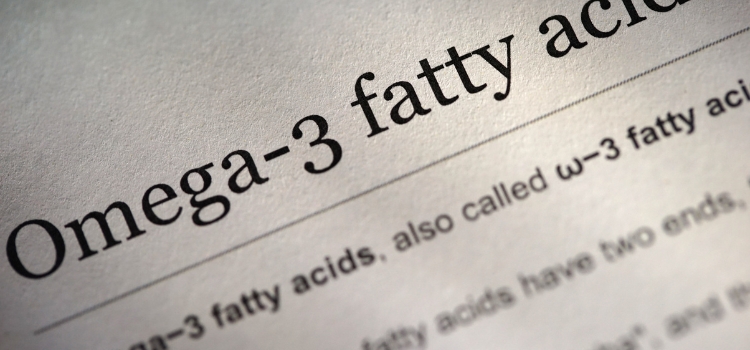Omega 3's And Fish Oils
Why Omega-3 Fatty Acids Are More Important Than Ever?
The body needs all sorts of different fats to function properly. Even saturated fats play a critical role for survival. Like a miraculous chemistry set, the body can typically convert most types of fat into whatever type it is missing. Omega-3's, however, are an exception. They are one of only a few types of fats called “essential” because your body cannot make its own supply. Omega-3s must be consumed, either through diet or supplements.
Omega-3 fats are in the headlines so much today because we’ve discovered just how powerful they are at controlling inflammation. It is also used for many other reasons, like helping reduce triglycerides, osteoarthritis, rheumatoid arthritis, asthma, dermatitis, ADHD and can help with cognition, dementia along with depression.
Deficiency of Omega-3's can lead to low energy, depression, weakness, vision and learning problems, dry skin, poor hair and nail growth, impaired digestion, increased risk of auto-immune conditions, cardiovascular disease, cancer, diabetes, weak bones, impaired liver and kidney function, poor glandular performance, poor reproductive performance, and greater likelihood of becoming overweight.
What The Latest Research On Omega-3 and Fish Oils Is Proving
Latest research has led to the breakdown of Omega-3 and the 3 different types there are.
Here are the 3 different types of Omega-3 and how they help the body:
-
EPA (eicosapentaenoic acid)
-
Reduces inflammation throughout the body, especially for
your heart, arteries, and brain (including depression)
-
Reduces inflammation throughout the body, especially for
-
DHA (docosahexaenoic acid)
-
Reduces inflammation throughout the body, especially for
your heart, arteries, and brain (including depression)
-
Reduces inflammation throughout the body, especially for
-
ALA (alpha-linolenic acid)
-
Reduces triglycerides, blood sugar, and potentially harmful LDL
cholesterol.
-
Can be converted to EPA or DHA
-
Between poor overall conversion of ALA plus common inadequate dietary intake of EPA and DHA, most people likely need an Omega-3 supplement to reach adequate levels of this critical nutrient.

Typical Supplement Dosage
So we need to dose between 2000 milligrams and 4000 milligrams of EPA and DHA.
Some side effects that you might experience mainly are:
- GI
- Abdominal Pain
- Loose Stools
- Some people can experience fish burps
But there can be some issues with some anticoagulation because it can help in the blood. So if you're on any kind of blood thinners, you definitely would want to talk to a health care provider before starting.

Omega-3 In Food!
- Salmon
- Mackerel
- Halibut
- Sardines
- Anchovies
- For vegans, algae, which is the dietary source of omega-3s
- Flaxseed (freshly ground)
- Walnuts
- Chia Seeds
- Hemp
- Navy Beans
- Avocado

The Timeline
-
1978:
- The Greenland "Lancet" Journal was groundbreaking research that was published by the indigenous people of Greenland, prompting a rethinking of fats which catapults omega threes into the spotlight and puts them on the medical and scientific map.
-
1985:
- New England Journal of Medicine; three major papers; one about epidemiology, one about clinical medicine, and one about basic science. As these articles are in the most prestigious medical journal in the world, they put omega threes in the mainstream in a big way.
-
1989:
- The Fish and Heart Study, published in Lancet medical journal; a paper showing that eating fish for two years reduced all causes of mortality (Death) for people who have experienced a heart attack. So, prevention of death after you've had a heart attack
-
1999:
- GI SSI study. The first well-powered study using fish oil supplements, not just eating fish. So it is not just a dietary change to reduce the risk for death, cardiovascular death and sudden cardiac death, all without meaningful lowering of cholesterol or triglycerides.
-
2004:
- The Omega Three Index is proposed as a new risk factor. Dr. Bill Harris published a paper in the Journal of Preventative Medicine proposing the Omega three index as a new risk factor for cardiovascular death. And just to give you a little bit about this test; the lower your number the more likely you are to have an issue; the higher your number, the least likelihood you are to have a cardiovascular event.
-
2010 - 2018:
- Stalemate years
-
2018 - Now:
- Reduce-IT Study. Major development, pointing to the fact that one has to take a high enough dose of omega threes to get its benefits.

In Conclusion
- Take your diet into consideration and current health issues before supplementing for Omega-3; talk with your primary health care provider if you are on blood thinners before supplementing for Omega-3
- When supplementing, make sure you're taking the correct dosage for YOU
- Omega-3 can be easily eaten or supplemented, so take your pick 😉
Related Posts
Magnesium - The Master Mineral
Magnesium is a vital mineral that plays a crucial role in more than 300 enzymatic reactions. Read that one more time. If we're deficient in magnesium, we affect over 300 processes in our body. Click below to find out just some of the critical functions Magnesium impacts.
11 Essential Lab Tests Everyone Should Consider
What comes to mind when you think of ways to be proactive about your health? If things like a healthy diet, exercise, and getting plenty of sleep pop into your head, you're certainly not wrong, BUT there's one step that is often overlooked... Running Essential Lab Tests... Click below to learn more about what labs are essential!

Dr. Deborah Bowers
822 B E Liberty St
York, SC 29745
(803)628-7934
© 2025 Dr. Deborah Bowers. All Rights Reserved.
Site Conceived By HealthProWebsite.com

